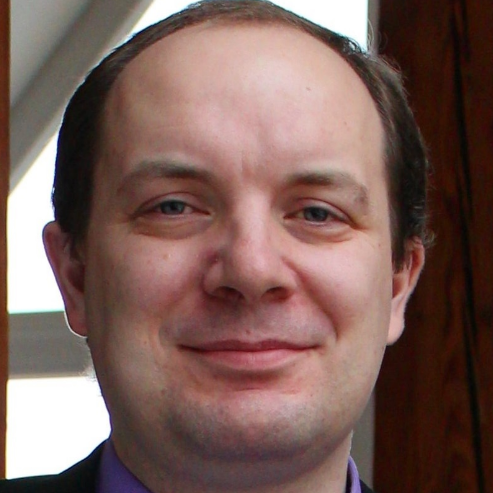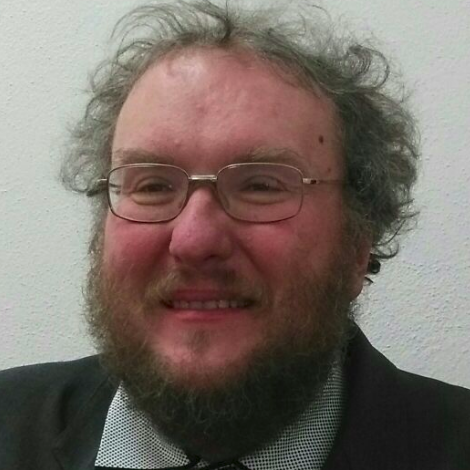International Journal of Intelligent Systems and Applications (IJISA)
IJISA Vol. 10, No. 4, 8 Apr. 2018
Cover page and Table of Contents: PDF (size: 977KB)
Technology of Gene Expression Profiles Filtering Based on Wavelet Analysis
Full Text (PDF, 977KB), PP.1-7
Views: 0 Downloads: 0
Author(s)
Index Terms
Gene expression profiles, Filtering, Wavelet analysis, Shannon entropy, Thresholding
Abstract
The paper presents the technology of gene expression profiles filtering based on the wavelet analysis methods. A structural block-chart of the wavelet-filtering process, which involves concurrent calculation of Shannon entropy for both the filtered data and allocated noise component is proposed. Simulation of the wavelet-filtering process was performed with the use of orthogonal and biorthogonal wavelets on different levels of wavelet decomposition and with the use of various values of the thresholding coefficient. Result of the simulation has allowed us to propose the technology to determine the optimal parameters of the wavelet filter based on complex analysis of the filtered data and allocated noise component.
Cite This Paper
Sergii Babichev, Jiří Škvor and Jiří Fišer, Volodymyr Lytvynenko, "Technology of Gene Expression Profiles Filtering Based on Wavelet Analysis", International Journal of Intelligent Systems and Applications(IJISA), Vol.10, No.4, pp.1-7, 2018. DOI:10.5815/ijisa.2018.04.01
Reference
[1]D. Zak, R. Vadigepalli, E. Gonye, F. Doyle, J. Schwaber and B. Ogunnaike. Unconventional systems analysis problem in molecular biology: a case study ingene regulatory network modeling. Computational and Chemical Engineering, vol. 29(3), pp. 547–563, 2005.
[2]H. Kitano. Foundations of Systems Biology. MIT Press, 2001.
[3]E. Klipp, R. Herwig, A. Kowald, C. Wierling and H. Lehrach. Systems Biology in Practice. Concepts, Implementation and Application. Wiley-Blackwell, 2006.
[4]H. Yaghoobi, S. Haghipour, H. Hamzeiy and M. Asadi-Khiavi. A review of modeling techniques for genetic regulatory networks. Journal of Medical Signals and Sensors, vol.2(1), pp. 61–70, 2012.
[5]F. Emmert-Streib, M. Dehmer and B. Haibe-Kains. Gene regulatory networks and their applications: understanding biological and medical problems in terms of networks. Frontiers in Cell and Developmental Biology, vol. 2, pp. 1–7, 2014.
[6]J. Dussaut, C. Gallo, F. Cravero, M.J. Martnez and J.P. Carballido. Gernet: a gene regulatory network tool. BioSystems, vol. 162, pp. 1–11, 2017.
[7]J. Heather and B. Chain. The sequence of sequencers: The history of sequencing DNA. BioSystems, vol. 107(1), pp. 1–8, 2016.
[8]Daz-Badillo, M. Muoz, at al. A dna microarray-based assay to detect dual infection with two dengue virus serotypes. Sensors, vol. 14(5), pp. 7580–7601, 2014.
[9]K. Nazari, A. Karami, N. Amiri and F. Pourali. Microarray data analysis for detection and classification of viral infection. Journal of Applied Biotechnology Reports, vol. 1(1), pp. 22–27, 2014.
[10]S. Babichev, V. Lytvynenko, M. Korobchynskyi and M.A. Taif. Objective clustering inductive technology of gene expression sequences features. Communications in Computer and Information Science, vol. 716, pp. 359–372, 2016.
[11]S. Babichev, V. Lytvynenko, J. Škvor and J. Fišer. Model of the Objective Clustering Inductive Technology of Gene Expression Profiles Based on SOTA and DBSCAN Clustering Algorithms, vol. 689, pp. 21–39, 2017.
[12]S. Babichev, M.A. Taif, V. Lytvynenko and V. Osypenko. Criterial analysis of gene expression sequences to create the objective clustering inductive technology. IEEE 37th International Conference on Electronics and Nanotechnology, ELNANO 2017, pp. 244–248, 2017.
[13]Zh. Hu, Ye.V. Bodyanskiy, O.K. Tyshchenko, and V.O. Samitova,"Fuzzy Clustering Data Given in the Ordinal Scale", International Journal of Intelligent Systems and Applications (IJISA), Vol.9, No.1, pp.67-74, 2017.
[14]Zh. Hu, Ye.V. Bodyanskiy, O.K. Tyshchenko, and V.O. Samitova,"Fuzzy Clustering Data Given on the Ordinal Scale Based on Membership and Likelihood Functions Sharing", International Journal of Intelligent Systems and Applications (IJISA), Vol.9, No.2, pp.1-9, 2017.
[15]Zh. Hu, Ye.V. Bodyanskiy, O.K. Tyshchenko, V.O. Samitova,"Possibilistic Fuzzy Clustering for Categorical Data Arrays Based on Frequency Prototypes and Dissimilarity Measures", International Journal of Intelligent Systems and Applications (IJISA), Vol.9, No.5, pp.55-61, 2017.
[16]Zh. Hu, Ye.V. Bodyanskiy, O.K. Tyshchenko, V.M. Tkachov, “Fuzzy Clustering Data Arrays with Omitted Observations”, International Journal of Intelligent Systems and Applications (IJISA), Vol.9, No.6, pp.24-32, 2017.
[17]Daubechies. The wavelet transform, time-frequency localization and signal analysis. IEEE Transactions on Information Theory, vol. 36(5), pp. 961–1005, 1990.
[18]R. Coifman, Y. Meyer and M. Wickerhauser. Wavelet analysis and signal processing. Wavelets and their applications, pp. 153–178, 1992.
[19]Y. Bodyanskiy, A. Dolotov and O. Vynokurova. Evolving spiking wavelet-neurofuzzy self-learning system. Applied Soft Computing Journal, vol. 14, pp. 252–258, 2014.
[20]Y. Bodyanskiy, O. Vynokurova, I. Pliss, D. Peleshko and. Y. Rashkevych. Hybrid generalized additive wavelet-neuro-fuzzy-system and its adaptive learning. Advances in Intelligent Systems and Computing, vol. 470, pp. 51–61, 2016.
[21]Hausser and K. Strimmer. Entropy inference and the james-stein estimator with application to nonlinear gene association networks. Journal of Machine Learning Research, vol. 10, pp.1469–1484, 2009.
[22]D.G. Beer, S.L. Kardia, at. al. Gene-expression profiles predict survival of patients with lung adenocarcinoma. Nature Medicine, vol. 8(8), pp. 816–824, 2002.
[23]S.A. Babichev, A.I. Kornelyuk, V.I. Lytvynenko and V. Osypenko. Computational analysis of microarray gene expression profiles of lung cancer. Biopolymers and Cell, vol. 32(1), pp. 70–79, 2016.



